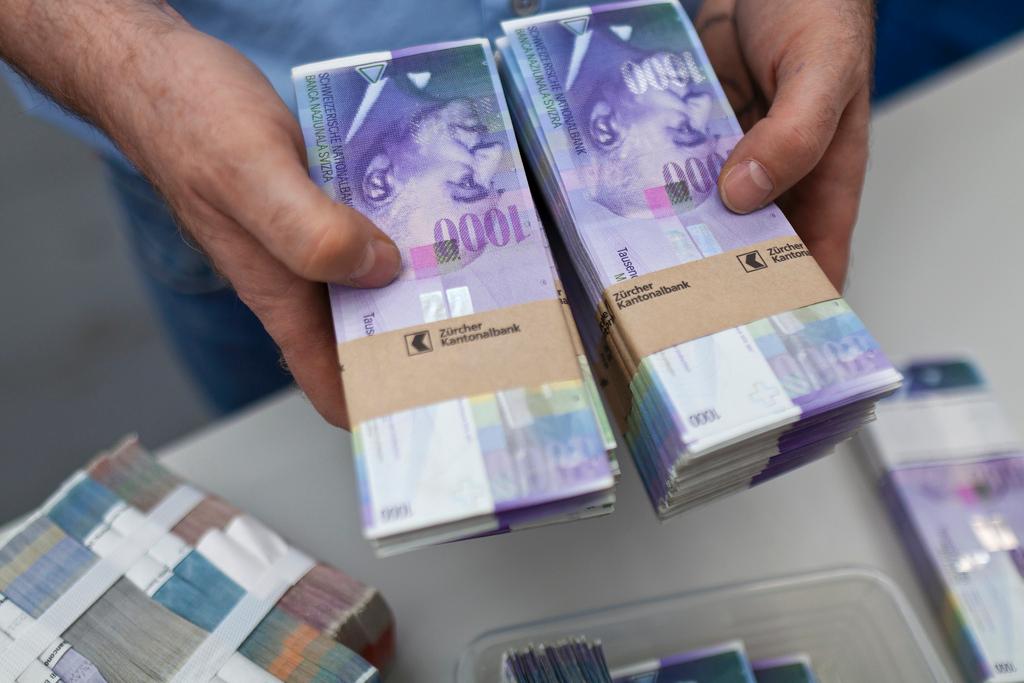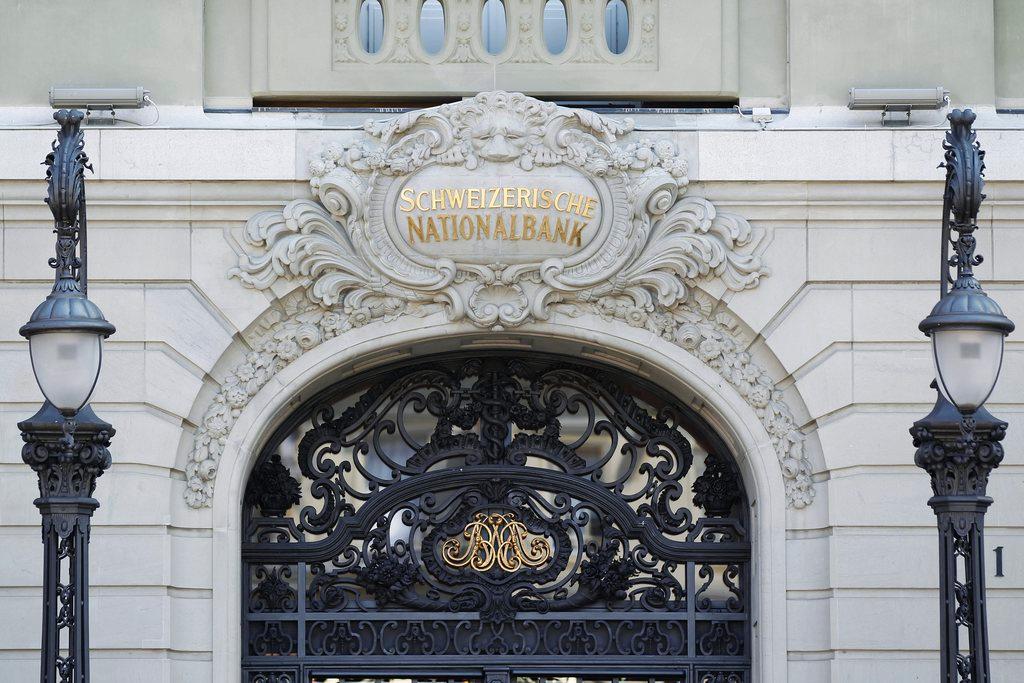SNB slaps charge on Swiss franc stockpilers

The growing allure of the franc for international investors has forced the Swiss National Bank (SNB) to introduce negative interest rates as it battles to defend its CHF1.20 exchange rate ceiling with the euro.
Falling oil prices, the Russian rouble crash and an anticipated European Central Bank (ECB) spending spree have increased the franc’s appeal as a safe haven currency, putting pressure on the SNB’s policy of containing its appreciation.
The franc-euro exchange rate has been hovering in the danger zone of around CHF1.2008 this week, the closest it has come to breaking through the ceiling for several months. It marks one of the most critical moments for the SNB’s currency policy since the euro peg was introduced in September 2011.
The SNB has therefore decided to start charging 0.25% on Swiss franc deposits held at the central bank as of January 22, 2015. From this date, investors will be charged for the privilege of stockpiling Swiss francs, as opposed to earning interest on their deposits as they would expect under more normal circumstances.
At the same time, the central bank expanded its three-month Libor interbank lending target range from 0% to 0.25% to between -0.75% and +0.25%.
Who would be affected
The charges would hit the central bank deposits of commercial banks, insurance companies, securities dealers and other institutions, such as hedge funds. The value of these deposits stood at around CHF313 billion ($325 billion) as the SNB made its announcement on Thursday.
“The introduction of negative interest rates makes it less attractive to hold Swiss franc investments, and thereby supports the minimum exchange rate,” the central bank said in a statement. “The SNB is prepared to purchase foreign currency in unlimited quantities and to take further measures, if required.”
Deposits of under CHF10 million ($10.4 million) will be exempt from charges, with the SNB hinting that it could raise the exemption threshold bar higher for some investors. Domestic banks that are obliged to hold deposits at the SNB will not be charged providing such assets do not exceed 20 times their minimum reserve requirements.
Both UBS and Credit Suisse said that the measures were unlikely to affect them given the current level of their SNB deposits. But UBS economists believe that some foreign bank branches in Switzerland may well be hit by charges.
SNB chairman Thomas Jordan said that negative interest rates would not affect domestic bank customers directly. Speaking at a press conference Thomas said it “makes no sense” for banks to pass on costs to savers and small businesses. But he warned that such considerations would be out of the SNB’s hands.
“The level of interest on customer deposits is a matter for the commercial banks, and the SNB does not exert any influence on their business decisions,” he said. “Banks must consider how they will adjust their lending and deposit conditions to changes in money market interest rates.”
Numerous banks quizzed by the Swiss media said they either had no plans to raise charges for customers or made no comment for the time being.
Divided opinion
The timing of the SNB move took some analysts by surprise and divided opinion on how effective it could turn out to be. Whilst many market watchers thought negative interest rates would at least buy the central bank some valuable breathing space, others were not so sure it could put off speculators looking to make a buck by taking on the SNB.
“You can’t steer a currency with interest rate moves alone,” St Gallen Cantonal Bank chief investment officer Thomas Stucki told Reuters. “The prospect of big profits if the 1.20 limit collapses is so great that speculators won’t be deterred by negative interest rates.”
The ECB’s decision this summer – and again in September – to introduce negative interest rates for commercial depositors was instrumental in influencing the SNB’s announcement, according to Tobias Straumann, an economic historian at the University of Zurich.
“The SNB first thought that it would not be necessary to follow suit, but they changed their minds after the recent Russian economic crisis sent jitters through the financial markets,” he told swissinfo.ch. “This latest development has increased the chances of investors seeking flight to safe havens, so the SNB needed to close this door.”
Past precedent
And it is not the first time Switzerland has taken the unusual step of introducing negative interest rates. In the 1970s, commercial banks were ordered to charge foreign investors an even more hefty fee for depositing money with them as the franc appreciated alarmingly.
But the measure was unsuccessful, as foreigners could bypass the charges by investing directly into Swiss shares or real estate, Straumann said. “There is no such loophole with the latest measures, as no one can escape base interest rates.”
The SNB has been steadfast in its three-year strategy of preventing the value of the franc from shearing upwards against the euro. If that happens, Swiss exports will become too expensive for the European market and tourists will be put off from visiting Switzerland. In addition, the SNB fears that would spark deflation as demand for Swiss goods drops off.
ECB policy threat
Switzerland’s negative interest rate policy will come into effect on January 22 next year. This will coincide with an ECB policy meeting where participants may decide on launching a quantitative easing programme to pump large quantities of euros into the market.
ECB president Mario Draghi hinted earlier this year that the central bank may soon start a programme of buying bonds and securities in an effort to breathe new life into the European economy.
Such a spending spree would also come with the side effect of bringing down the value of the euro against other currencies, including the Swiss franc. That would in turn put further pressure on the SNB’s strategy of preventing the franc from appreciating against the euro.

In compliance with the JTI standards
More: SWI swissinfo.ch certified by the Journalism Trust Initiative



You can find an overview of ongoing debates with our journalists here. Please join us!
If you want to start a conversation about a topic raised in this article or want to report factual errors, email us at english@swissinfo.ch.